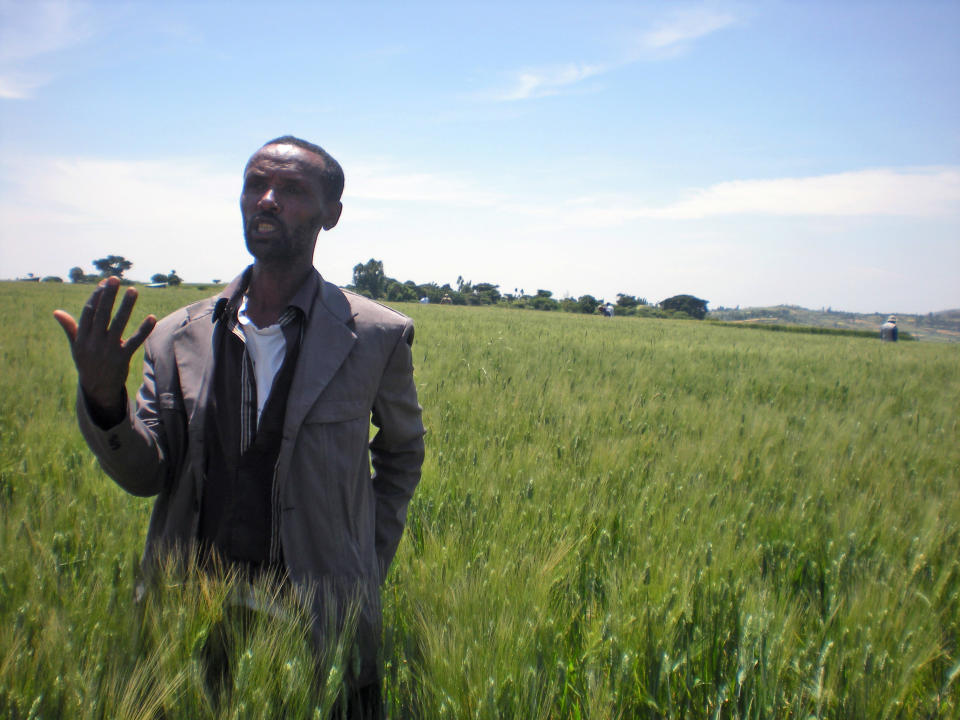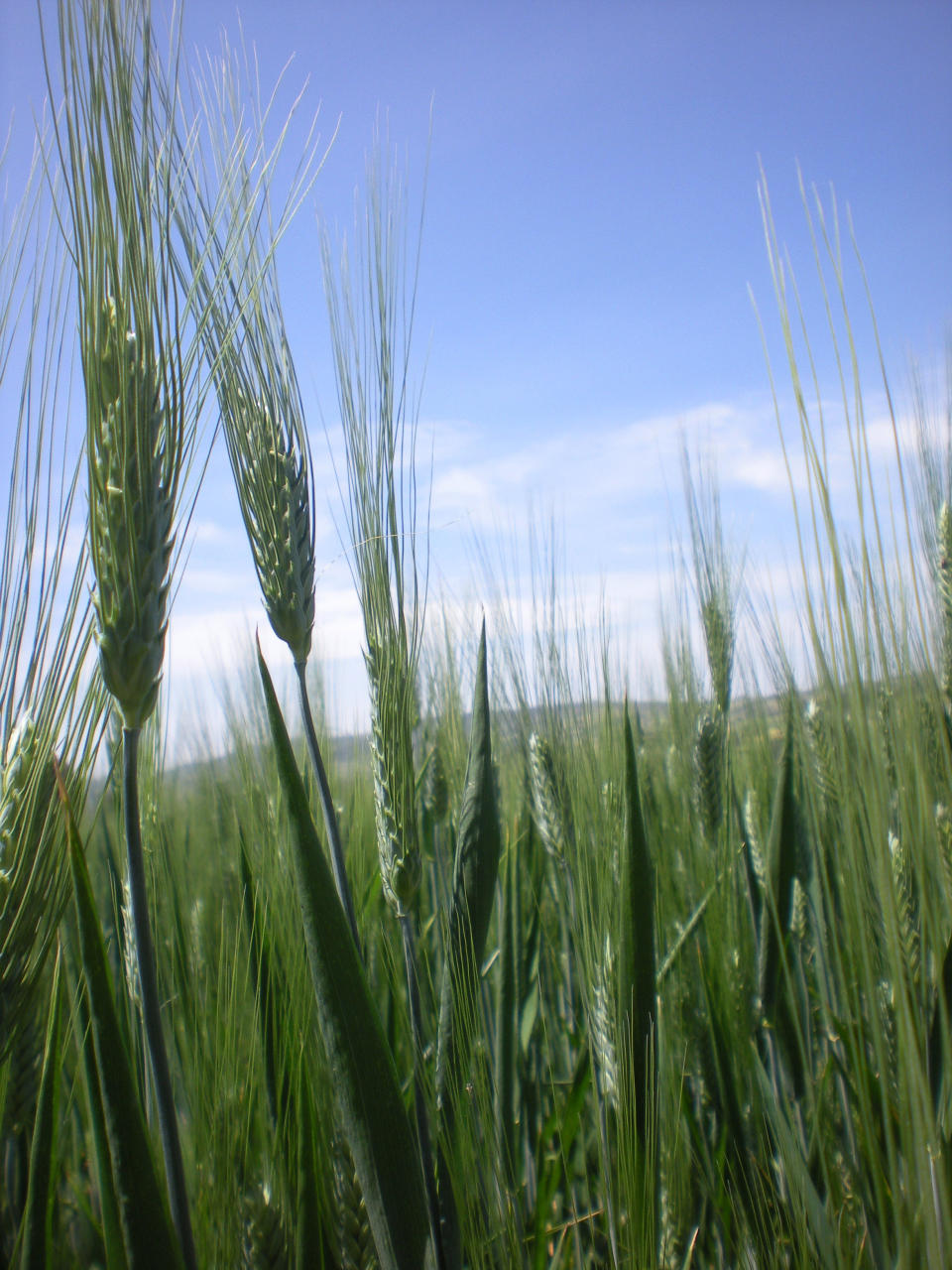Should Africa be growing more wheat?
DEBRE ZEIT, Ethiopia (AP) — Bedlu Mamo stood in middle of his field in Ethiopia and cast a wary eye at the new variety of wheat he planted for the first time.
"The price is good, better than what we get for other crops. But the companies that buy the wheat may not come to buy," Bedlu said.
But despite the farmer's misgivings, the International Maize and Wheat Improvement Center says demand for wheat is growing faster than for any other food crop in sub-Saharan Africa, where corn has long been considered the most important cereal crop. As the U.N.'s Food and Agricultural Organization marked World Food Day on Tuesday, experts are reexamining what crops are best produced in Africa, for Africans.
Ethiopia last week hosted a conference to look at ways to increase the amount of wheat African farmers grow. Only 44 percent of the wheat consumed in Africa is produced locally.
"The first task is to convince policy makers that there is a potential to produce wheat in Africa," said Asfaw Negassa, a consultant with the center. "With the right policy, right seed and marketing system, there can be enough wheat production in Africa to substitute the significant portion of imports that costs the continent scarce hard currency."
The corn and wheat center says African countries in 2012 will spend $12 billion to import 40 million tons of wheat — money that could be used for other pressing needs.
Wheat production in sub-Saharan Africa dropped sharply in the 1980s after an influx of food aid made the crop unprofitable, said the maize and wheat improvement center, which is known by the initials CIMMYT. At the same time, the focus of international development shifted to corn and cassava. A growing demand for wheat has led agricultural experts to rethink the crop in Africa, the group said.
But sometimes the farmer must confront market forces that can be a disincentive to plant.
For Bedlu, the Ethiopian farmer, this season marks the first time he has planted the Mangudo variety of durum wheat. He has high hopes for it, but worries he may not find a buyer. Showing how complicated global agricultural can be, Bedlu and Asnake Fikre, the director of the Debre Zeit Agriculture Research Center, say imported wheat can often be bought for less.
Ethiopia's government in recent months has struggled to stabilize rampant food inflation — a big burden for a country that solicits food aid. Some 3.5 million Ethiopians required humanitarian assistance this year alone. The U.S. government contributed $427 million to agricultural development, food security and emergency aid to Ethiopia in fiscal 2011, said Diane Brandt, an embassy spokeswoman.
World Food Day is dedicated to remembering the importance of global food security. The theme for 2012 is "Agricultural cooperatives - key to feeding the world."
Hunger is declining in Asia and Latin America but is rising in Africa, according to the FAO. The World Bank says agricultural productivity must increase in Africa because African farm yields are among the lowest in the world.
One in eight people around the world goes to bed hungry every night, the FAO says. But things are turning in the right direction: The total number of hungry people in the world is 870 million, down from 1 billion 20 years ago.
Some of the efforts have been at the grassroots level. In East Africa, an American aid group called One Acre Fund is working with 130,000 farming households to increase food production through improved seeds and fertilizer. Nick Handler, the group's country director in Kenya, said the households his organization works with are becoming more aware of the benefits that improved seeds and fertilizers can have.
"On average we're seeing a tripling of yields and a doubling of profit once you net out the additional costs for farmers who sign up for the program," he said.
___
Straziuso reported from Nairobi, Kenya.



